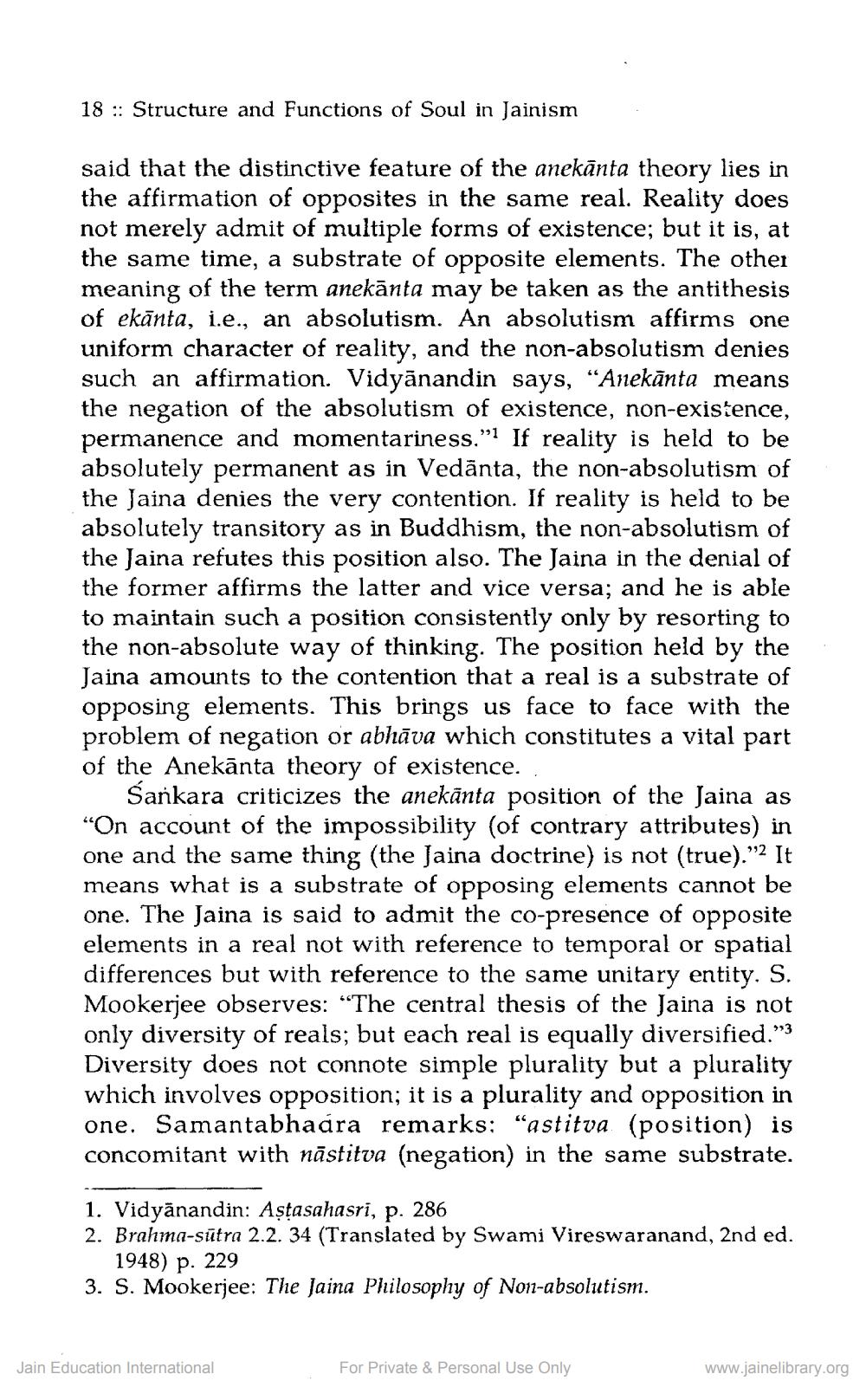________________
18 :: Structure and Functions of Soul in Jainism
said that the distinctive feature of the anekānta theory lies in the affirmation of opposites in the same real. Reality does not merely admit of multiple forms of existence; but it is, at the same time, a substrate of opposite elements. The other meaning of the term anekānta may be taken as the antithesis of ekānta, i.e., an absolutism. An absolutism affirms one uniform character of reality, and the non-absolutism denies such an affirmation. Vidyānandin says, “Anekānta means the negation of the absolutism of existence, non-existence, permanence and momentariness.” If reality is held to be absolutely permanent as in Vedānta, the non-absolutism of the Jaina denies the very contention. If reality is held to be absolutely transitory as in Buddhism, the non-absolutism of the Jaina refutes this position also. The Jaina in the denial of the former affirms the latter and vice versa; and he is able to maintain such a position consistently only by resorting to the non-absolute way of thinking. The position held by the Jaina amounts to the contention that a real is a substrate of opposing elements. This brings us face to face with the problem of negation or abhāva which constitutes a vital part of the Anekānta theory of existence.
Sankara criticizes the anekānta position of the Jaina as “On account of the impossibility (of contrary attributes) in one and the same thing (the Jaina doctrine) is not (true)."2 It means what is a substrate of opposing elements cannot be one. The Jaina is said to admit the co-presence of opposite elements in a real not with reference to temporal or spatial differences but with reference to the same unitary entity. S. Mookerjee observes: “The central thesis of the Jaina is not only diversity of reals; but each real is equally diversified.”3 Diversity does not connote simple plurality but a plurality which involves opposition; it is a plurality and opposition in one. Samantabhaara remarks: "astitva (position) is concomitant with nāstitva (negation) in the same substrate.
1. Vidyānandin: Aştasahasri, p. 286 2. Brahma-sūtra 2.2. 34 (Translated by Swami Vireswaranand, 2nd ed.
1948) p. 229 3. S. Mookerjee: The Jaina Philosophy of Non-absolutism.
Jain Education International
For Private & Personal Use Only
www.jainelibrary.org




